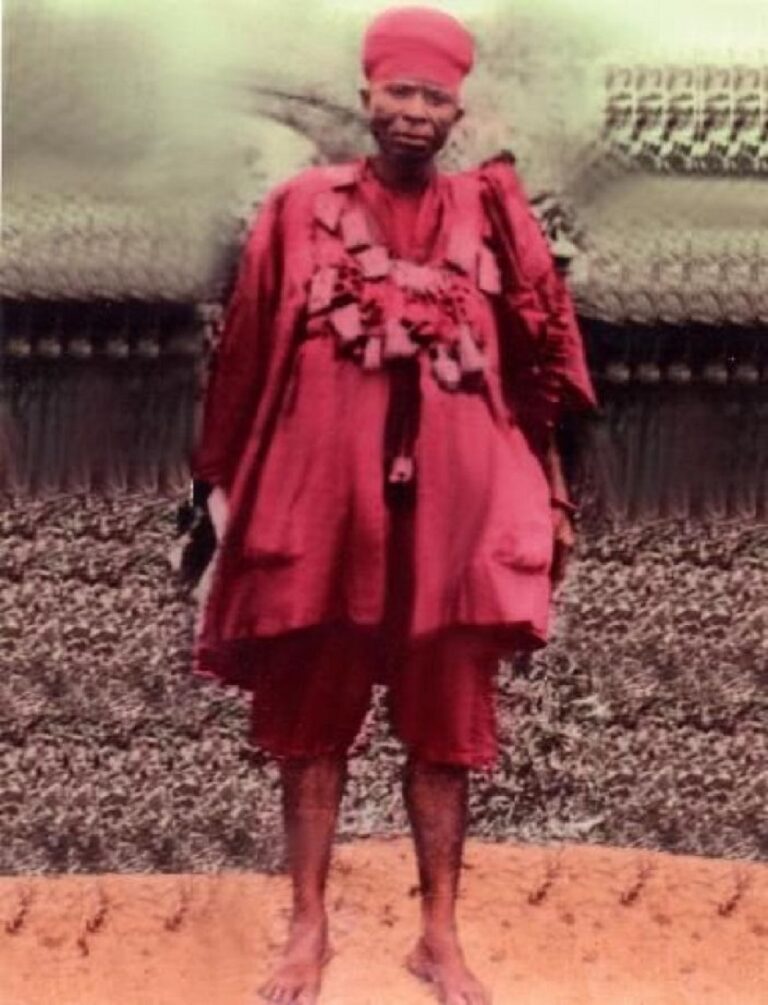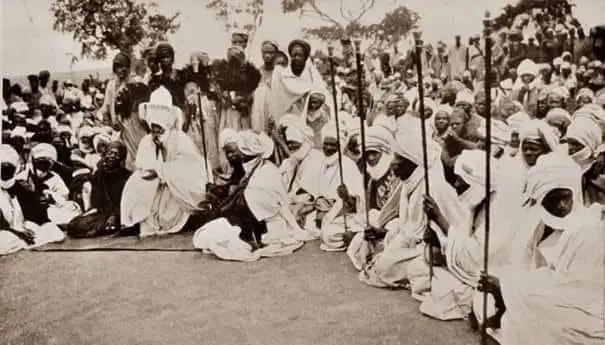History Of Afonja: A Powerful Oyo Warrior

Afonja was a prominent figure in the history of the Oyo Empire, known for his military prowess and influence during the 18th century. His actions played a pivotal role in shaping the course of events in the region.
Early Life and Rise to Power
Afonja was a prominent figure in the history of the Oyo Empire, known for his military prowess and eventual rebellion against Alaafin, the empire's ruler. Born in the late 18th century, Afonja rose to become a powerful warrior and leader within the Oyo Empire, playing a significant role in its later years.
Afonja's early life is shrouded in mystery, with conflicting accounts regarding his origins. Some sources suggest he was of Yoruba descent, possibly from a lineage of warriors. Regardless of his exact background, it is widely agreed that Afonja emerged as a formidable military commander during a time of internal strife within the Oyo Empire.
By the late 18th century, the Oyo Empire, once a dominant force in West Africa, was facing internal challenges. Discontent among provincial leaders and internal power struggles weakened the central authority of the Alaafin. This provided an opportunity for ambitious regional leaders like Afonja to assert their influence.
The Oyo Empire: A Brief Overview
Before delving into Afonja's role, it's essential to understand the socio-political context of the Oyo Empire. At its zenith, the Oyo Empire was a dominant force in West Africa, with a well-structured political system and a formidable military.
Afonja's Leadership Style
READ ALSO » History Of The Old Oyo Empire
Afonja was known for his strategic thinking and innovative military tactics. He displayed a keen understanding of the terrain and was adept at rallying troops for battle. His leadership style was characterized by a combination of boldness, charisma, and tactical acumen.
The Crisis with Alaafin Adeyemi III
Afonja's military prowess and strategic acumen earned him a position of considerable authority in the western province of the empire. He commanded a formidable army and ruled over the region with a firm hand. As his power grew, so did his ambitions.
Tensions between Afonja and the Alaafin escalated over time. Afonja sought to assert greater autonomy and control over the western territories, while the Alaafin, concerned about potential rebellions, aimed to maintain central authority. The strained relationship between the two eventually led to a decisive confrontation.
In 1817, Afonja's forces clashed with the Alaafin's army in a series of battles. The conflict culminated in the siege of the Oyo capital, Oyo-Ile, which was a pivotal moment in Afonja's rebellion. After a prolonged and intense struggle, Afonja's forces emerged victorious, resulting in the exile of the Alaafin and the establishment of Afonja as the de facto ruler of the western territories.

With Oyo-Ile under his control, Afonja established his own administration and court. He appointed his own officials and governed with a degree of autonomy, effectively splitting the empire into two factions: the eastern territories under Alaafin's authority, and the western territories under Afonja's rule.
Afonja's rebellion, however, was not without its challenges. The empire's fragmentation weakened its overall stability, making it vulnerable to external threats. Additionally, Afonja faced opposition from neighboring states and internal dissension within his own ranks.
One of the most significant challenges to Afonja's rule came from the Fulani Jihadist forces led by Shehu Usman dan Fodio. The Fulani forces sought to establish their own Islamic state in the region and saw Afonja's rule as an obstacle. In 1824, they launched a campaign against Afonja's forces, known as the Fulani War.
READ ALSO » Top 7 Most Powerful African Kings In History
The war proved to be a formidable test for Afonja and his army. Despite their valiant efforts, they were eventually defeated by the disciplined and determined Fulani forces. Afonja's rebellion came to a tragic end with his death in battle.
Following Afonja's demise, the western territories fell under the control of the Fulani Caliphate, further altering the political landscape of the region. The Oyo Empire, once a dominant force, continued its decline, eventually leading to its disintegration.
Afonja's legacy is a complex one. While he is remembered as a powerful warrior and a symbol of resistance against centralized authority, his rebellion ultimately contributed to the weakening and eventual collapse of the Oyo Empire. His story serves as a reminder of the intricate dynamics of power, rebellion, and the complex history of West Africa in the 18th and 19th centuries.
After Afonja's death, the Fulani Caliphate established control over the western territories, incorporating them into their expanding empire. The aftermath of Afonja's rebellion marked a significant turning point in the history of the Yoruba people and the wider region.
The disintegration of the Oyo Empire left a power vacuum, leading to the emergence of various smaller states and factions vying for control. This period of political fragmentation and instability paved the way for the rise of new kingdoms and emirates, further reshaping the geopolitical landscape of West Africa.
Afonja's legacy continued to be a subject of historical discourse and cultural memory among the Yoruba people. While some viewed him as a heroic figure who stood up against perceived tyranny, others saw his rebellion as a contributing factor to the eventual downfall of the Oyo Empire and the resulting turmoil in the region.
Over time, Afonja's story became interwoven with folklore, oral traditions, and cultural narratives, solidifying his place in the collective memory of the Yoruba people. Songs, poems, and stories were passed down through generations, ensuring that Afonja's name remained a significant part of Yoruba history.
In contemporary times, Afonja's legacy continues to be a subject of academic study, cultural exploration, and artistic representation. Scholars, historians, and artists seek to unravel the complexities of his life and the broader historical context in which he operated.
READ ALSO » Top 10 Most Powerful Kings In Nigeria
Afonja's rebellion and its aftermath serve as a poignant reminder of the intricate interplay of political, social, and cultural forces in the history of West Africa. His story is emblematic of the challenges and transformations that characterized the region during a period of profound change and transition.
Ultimately, Afonja's place in history is a testament to the enduring impact of individuals who, through their actions and decisions, shape the course of events and leave a lasting imprint on the collective memory of their people. His legacy serves as a focal point for understanding the complexities of power, resistance, and the dynamic evolution of societies in the face of shifting political landscapes.
